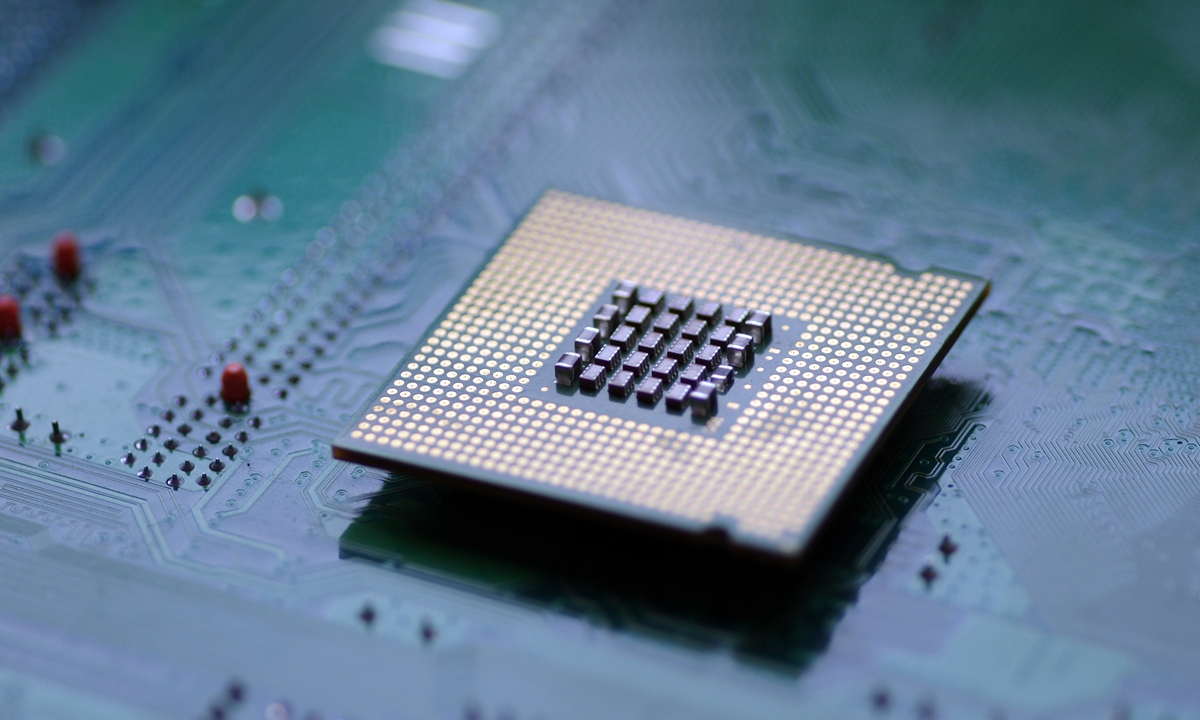
Photo: VCG
The South Korean government has decided to join the US-led Indo-Pacific Economic Framework (IPEF) as an initial member of the initiative, the Yonhap News Agency reported on Wednesday, citing anonymous presidential official. South Korean President Yoon Suk-yeol will virtually attend the IPEF inauguration summit meeting presided over by US President Joe Biden in Japan on May 24.
While the IPEF has been widely viewed as part of a US effort to exclude China from global supply chains, what the initiative covers exactly remains largely unclear. And judging by existing information, semiconductor supply-chain cooperation may be one of its focuses. During the visit to South Korea this week, Biden is scheduled to visit a Samsung Electronics chip manufacturing complex, which South Korean media outlets believed would be an obvious signal of the strengthened cooperation between the US and the East Asian country in the semiconductor field.
Over the past two years, the US has developed several cooperation or quasi-alliance mechanisms within the Asia-Pacific region in an aim to tighten its grip on the global semiconductor supply chains. For instance, Japan and the US just agreed to close cooperation on advancing 2nm semiconductor process development and mass production, Nikkei reported in early May. Moreover, since Yoon was elected, the US has stepped up its attempts to rope in South Korea too.
Under such circumstances, it is hard for South Korea to say no to the US' so-called semiconductor cooperation plan because it doesn't want to end up being marginalized within the US' industrial alliances. But that doesn't mean South Korea could ignore the risks of its semiconductor supply chains being hijacked by the US' geopolitical games.
In fact, the current situation of South Korea's semiconductor industry dictates the necessity for its semiconductor companies to avoid “taking sides” and strike a delicate balance in the China-US rivalry. South Korean semiconductor giants Samsung Electronics and SK Hynix ranked first and third in terms of global semiconductor revenue in 2021, according to global business tracker Gartner. Yet, the seemingly strong industry relies heavily on the Japanese supplies of upstream raw materials, and key parts of the industrial chains are subject to the US technology patent control.
If South Korea succumbs to the threats or control of the US and Japan to its semiconductor industry, it will be harmful to its industrial momentum, putting its supply chains at a disadvantage in the long run.
Obviously, the South Korean semiconductor industry has a clear understanding of what they are facing and are aware that to obtain more initiative over their industrial chains, they cannot avoid cooperation with China. SK Hynix just announced plans to build a new wafer manufacturing base in Dalian, Northeast China's Liaoning Province, in a show of its continuing investment in China. Moreover, the 12-inch NAND flash memory chip phase II project of Samsung China Semiconductor Co in Xi'an, Northwest China's Shaanxi Province, has been put into production earlier this year, with the plant's total production exceeding 10 percent of the world's NAND flash production.
All these moves reflect a reality that China, as the largest market for semiconductor applications, can help strengthen the position of major players in the global semiconductor supply chain. In fact, the same is true with many other industrial chains, given China's massive consumption market. Only through cooperation with China can South Korea gain a more favorable position when it comes to bargaining with the US in terms of its supply-chain development. Compromising the relationship with one party in exchange for closer ties with the other will only create more risks and self-harm.
At present, the Northeast Asian region is indeed facing structural geopolitical risks, but the only way to reduce them will be through cooperation in terms of economic and trade as well as culture. It can be expected that in the face of the US' pressure on the regional industrial chain, China will also take measures by issuing more favorable policies to attract investment and enhance cooperation with Japan and South Korea.
Last week, financial leaders from Japan, China and South Korea warned of risks to Asia's economic recovery and committed themselves to backing market stability and sound fiscal policy, according to the South China Morning Post. Also, with 16 rounds of negotiations for the China-Japan-South Korea free trade agreement already completed, many hope that the implementation of the Regional Comprehensive Economic Partnership will be a foundation for speeding up the talks over the free trade deal. After all, there is every reason to believe that the basis for strengthening cooperation in the region still exists and should be valued.




